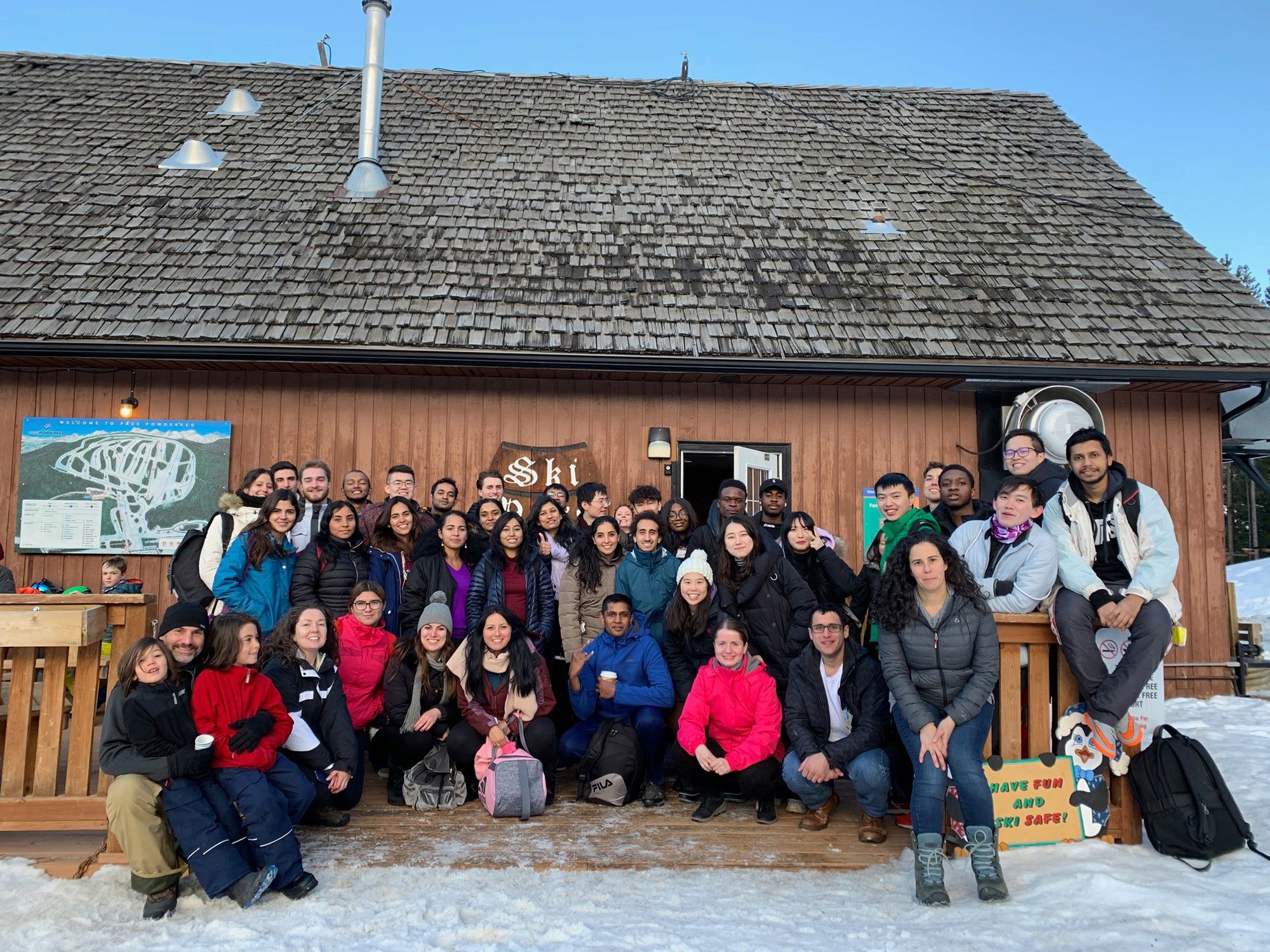In just one year, international student Anna Nikolova has survived two major Canadian snow storms and is living through a world-wide pandemic – not quite the experience she signed up for when choosing to pursue graduate studies abroad. But in her opinion, the experience has been more than worthwhile and she has no regrets in her decision to study at uLethbridge.
Arriving from Bulgaria in September 2019, Nikolova received a rude introduction to Canadian winters when the city ground to a halt in one of the largest autumn snow storms Lethbridge has seen. “I couldn’t bring a lot with me, so I was underprepared for Canadian winter,” Nikolova remembers with a laugh.
Thanks to the International Centre, Nikolova and her international roommates were supported, from their transition when first arriving, through their first winter snow storm receiving warm winter clothing and access to the food bank, and less than a year, providing support when the COVID-19 pandemic hit.
“In March, things changed quickly,” she recalls. “It was frightening. One day things seemed to be going fine here, then all of a sudden classes moved online and we were told they’re also closing down the dorms.”
Living in University housing, Nikolova has enormous amounts of gratitude for all the support Housing Services provided during a terrifying time of uncertainty. “They were incredible, and fast, and reassured me that everything would be fine, that I could stay. They said they were going to do everything to make sure this feels like my home. I really owe a lot to them and to the International Centre who reached out immediately to ask if I needed any assistance.”
“I felt really sure that, God forbid something bad should happen, that someone was looking out for me.”
Nikolova admits that there are downsides to the pandemic and the changes to her educational experience, but her gratitude, positivity and hard work ethic shine through.
“I know that I am privileged to have a home. I’m still studying, I’m still working, and that’s possible because of everything the University of Lethbridge is doing for me.”
Nikolova is confident she made the right decision in choosing uLethbridge for her graduate studies experience. Looking to the top universities in the US and Canada for an education abroad, Nikolova built a spreadsheet to guide her decision.

“I had all the universities on one side, and all the requirements, tuition fees, scholarships opportunities, portfolio and test requirements on the other. I colour coded each item with a traffic light system – green for good, yellow for maybe, and red for absolutely not. I worked on this spreadsheet for weeks, and one day I zoomed out and I saw a green line next to the name University of Lethbridge. There were no other green lines, so I called up my family and said, I’m moving to Canada.”
In her short time in Lethbridge, Nikolova has made the best of her experience – blizzards, pandemics and all – taking in day-trip opportunities with the International Centre, and attending workshops through Agility such as the Emerging Technologies series, 3D printing and virtual reality workshops. She also participated as a graduate assistant, working alongside New Media instructor Christine Clark (MFA ‘14; BFA – New Media ‘10), on the Blackfoot Digitization Project.
“This was and continues to be the most amazing experience,” reflecting on the work. “To work with a team on something I’m not just passionate about, but that I’m good at.”
Nikolova’s role was to review and edit 3D images of Indigenous artifacts, re-creating missing textures as well as animating the objects, for example, creating movement for a tassel rustling in the wind. Not only was the work new and challenging, but ensuring the work accurately represented the Indigenous items and their purpose was also educational. “I would of course ask what type of movement would be ok, respectful. Is it too wild? Too subtle? It was a very rewarding experience.”
Nikolova is grateful that she was able to complete her course work in person before the shutdown, leaving her to focus on her thesis and graduate assistantship work.
“My work is almost exclusively digital so working from home is not a problem,” she admits. “But I do miss the interactions and the ideas that are flowing in a university environment. Graduate student work is influenced by cohort and the flow of ideas that influences our projects.”
Nikolova’s thesis examines virtual environments, conducting complex research on how they can be used outside the gaming and entertainment industry for activities such as research, education, interior and landscape design. Designing a sci fi reproduction of her dorm room she will also look at topics of isolation, sustainability, nature, and technology.
“I have always been fascinated with multiverse concepts and parallel worlds so I ask what would my room look like in a parallel world, giving me more opportunity to work, conduct my research, and adding elements about reconnecting to nature, making nature more important than technology.”
Ironically the theme of being isolated to her dorm room came before COVID but took on new meaning and focus in our current socially isolated environment.
But Nikolova doesn’t feel alone in her room.
“I cannot express my gratitude enough to Housing Services and the International Centre. My life here wouldn’t look like this if it wasn’t for their dedication and their hard work. I may not get to hike and explore Canadian nature at the moment, but I get my education, and that’s what is important. I don’t have any regrets.”